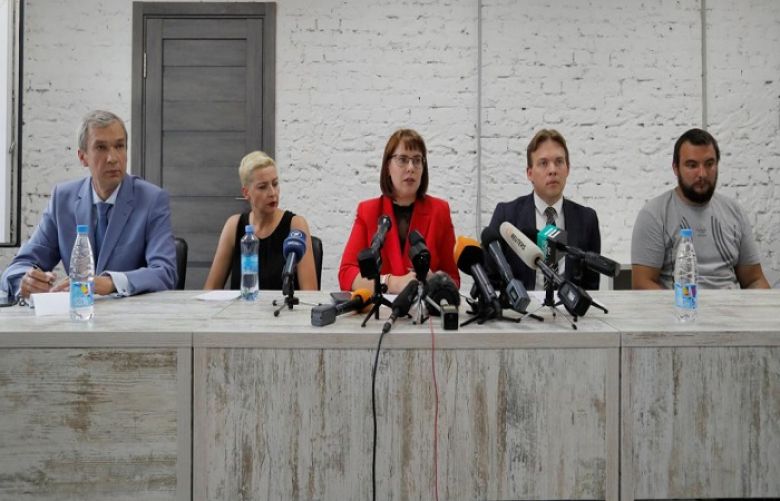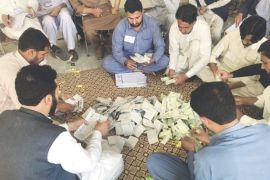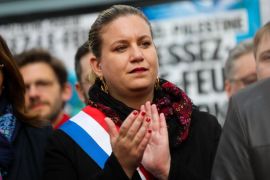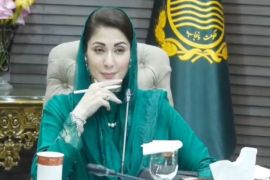Two weeks after an election which his opponents say he rigged, Lukashenko has shown little sign of bringing a halt to the demonstrations, the biggest threat to his 26-year-old rule.
The president, who has called the protesters “rats”, said last week he ordered police to put down any demonstrations in Minsk. But tens of thousands took to the streets on Sunday in one of the biggest demonstrations since the election, and dispersed peacefully.
In a sign of the peril to an already shaky economy, several banking sources told Reuters most banks had effectively run out of foreign currency to meet surging demand from residents trying to sell the Belarusian rouble. Queues have become common at exchange points.
A board member at the Belarus central bank told Reuters the issue was a technical one involving the physical availability of banknotes, and did not signal liquidity problems.
A spokesman for the Coordination Council, an opposition body set up last week, told Reuters two of its highest profile members, Olga Kovalkova and Sergei Dylevsky, had been detained on Monday near a factory entrance.
Separately, Belarusian Nobel laureate author Svetlana Alexievich has been called in for questioning by state investigators over a criminal case against the Council, the spokesman said, and is due to meet them on Wednesday.
Alexievich, who won the 2015 Nobel literature prize, is a member of the Council, which was set up with the stated aim of promoting a peaceful handover of authority and comprises dozens of public figures including the former head of the main state drama theatre.
The government has launched a criminal investigation, calling the Council an illegal attempt to seize power. Many leading opposition figures are in jail or have fled the country.
“Belarus has changed and authorities will have to talk to us,” one of the council members, Maria Kolesnikova, told reporters.







